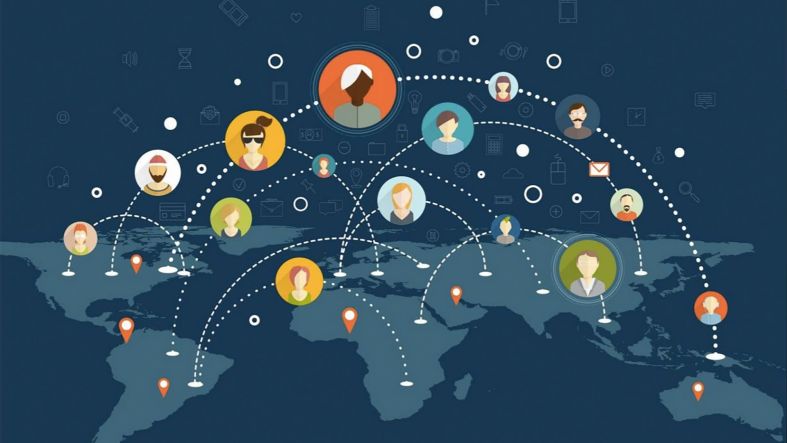Globalization’s impact on the job market

Globalization is affecting today’s job market in more ways than one. Companies are now looking beyond their national borders for high-quality, skilled laborers. Meaning that for job candidates, the boundaries are expanding, and the need for your experience and expertise is growing wildly.
But, before we dive into all of that, let’s’ start at the beginning: what is globalization?
What is Globalization?
Globalization is the expansion of people, ideas, knowledge, or goods across national borders. It began decades ago with the trading of goods, currently with technology and ideas, and the future likely holds the service industry.
Due to globalization, there has been a boom in job opportunities beyond national borders. With this boom, your potential as a job candidate heightens, new jobs are created, and old ones become more valuable.
Globalization for Job Candidates
As a whole, globalization means more job opportunities for candidates in the fields of technology, translation, and research.
But what types of jobs are benefitting the most?
- Interpreters and translators: This one may be obvious, but with ideas and labor crossing borders, the need for interpreters and translators is also going to rise quickly.
- Market Researchers: Crossing borders means that it is vital for companies to employ successful, trained market researchers to be able to gain knowledge of the different world markets.
- Computer and IT Professionals: Technology is what got us to vast globalization in the first place, so it’s no surprise that computer and IT professionals make the short list. Thanks to the spread of information technology, networks, databases, and Internet resources have become cheaper and more widespread.
Globalization for Companies
In globalization, the idea is that companies can decrease costs and sell their goods cheaper while still maintaining high-quality products and services.
To adapt, more companies will likely begin to allow people to work remotely whether they’re in Houston or Beijing. Because, in the end, what it is all about is that reduced spend and more sales lead to a higher market share.
This all means that for businesses, globalization leads to more competition between companies. From service costs to product prices and production time to technological adaptation, the competition has never been so fierce among companies around the world.
There is one thing for certain, and that is that the future of globalization is sure to rock the job market. Your experience, skills, and knowledge, have the potential to soon reach far beyond your office walls and boss’ desk!